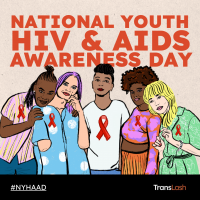By Sydney Bauer
After a summer of talking endlessly about inflation, candidates in the 2022 elections are increasingly aware that the abortion issue is front and center in the midterms. The Supreme Court upended the status quo on the medical procedure in the U.S. when it ruled in Dobbs v. Women’s Health to strike down the decision from Roe v. Wade and allowed states to criminalize abortion.
Candidates across the country are running on platforms that could codify the previous decision, push for a national abortion ban, or severely weaken the accessibility of abortion and reproductive healthcare.
Right-wing candidates continue to campaign on disrupting gender-affirming healthcare for youth, which could have grave consequences for all peoples’ access to healthcare.
In short: bodily autonomy is on the ballot in 2022. There are many key races and ballot initiatives where bodily autonomy could be expanded or limited. While this is not a comprehensive nationwide list, it does reflect what many candidates are saying about the right to make your own medical decisions.
Tight Senate Races and a National Abortion Ban
Democrats have controlled the Senate with a slim majority since winning a government trifecta in the 2020 election, but have been unable to eliminate the filibuster, preventing legislation from being passed without 60 votes in the chamber. Two senators, Joe Manchin (D-WV) and Krysten Sinema (D-AZ) roadblocked changing this threshold. Now, Democrats are running on a simple message: get us two more senators and we will codify the protections from Roe v. Wade into law.
There are three tight Senate races that could decide control of the chamber in Georgia, Pennsylvania, and Wisconsin—each with different dynamics.
In Georgia, incumbent Raphael Warnock is fighting to hold on to his seat from Republican candidate Herschel Walker. Walker professes support for a 15-week national abortion ban, with no exceptions. A similar ban was introduced by Senator Lindsay Graham (R-SC) earlier this year but has limited support. While slightly ahead in the polls, a Warnock victory is a toss-up in a true battleground state.
Pennsylvania’s race is a wide-open contest between two non-incumbents looking to fill a vacant seat from a retiring Republican Senator. John Fetterman, the Democratic candidate, supports ending the filibuster and codifying Roe v. Wade. His opponent, Mehmet Oz, calls himself pro-life and says “life begins at conception”. Though Oz opposes the medical procedure, he does not support criminal penalties for doctors or patients when it comes to abortion.
In Wisconsin, incumbent Ron Johnson (R-WI) is one of the most vulnerable incumbents of this cycle. His opponent, Mandela Barnes, like Fetterman of Pennsylvania, has run on codifying Roe and ending the filibuster. Johnson’s history of voting for fetal personhood bills and stripping all rights to abortion shadow his call for the public to vote on the issue.
Nationalizing Transgender Issues
Kevin McCarthy, Republican House minority leader released the “Commitment to America,” which is the legislative plan of the Republican party if they were to take back control of the House of Representatives. Included in this one-pager are two points that specifically attack the rights of transgender minors.
First, the commitment to “Defend fairness by ensuring that only women can compete in women’s sports,” is a commitment to pushing national legislation that would bar transgender athletes from competing in sports that match their gender identity.
Another is the commitment to passing a “Parents Bill of Rights,” which allows for more parental involvement in school matters regarding curriculums and outside speakers. This “bill of rights” was used by Florida Governor Ron Desantis to pass his “Don’t Say Gay” bill, which uses broad language to forbid teachers from discussing topics such as sexual orientation, gender identity, or alternative family configurations.
Having Republicans in the House of Representatives signal their intention to pass this kind of legislation makes the 2022 elections all the more important for trans people, and those who care about protecting bodily autonomy, to protect their rights.
Critical State Ballot Measures
Four states, California, Kentucky, Michigan, and Vermont have questions for voters this election to amend their constitutions to either allow for the right to abortion or ban it in the state.
California, Michigan, and Vermont’s referenda are to enshrine “reproductive freedom” measures in each state’s constitution. This would bind the right to abortion and bodily autonomy to major legal statutes in a way that would be onerous to repeal.
Meanwhile, Kentucky is taking an opposite approach where voters will vote on a “no right to abortion” amendment. This would protect Kentucky’s law outlawing abortion from being overturned by courts, and make it harder for women in the state to access different forms of reproductive healthcare without federal protection.
Transgender Candidates Fight For Their Rights
According to the Victory Fund – the Political Action Committee dedicated to electing LGBTQ candidates – it is endorsing 55 transgender candidates running for offices across the country in the 2022 election cycle, the highest number of candidates since the PAC started compiling its data. In addition, they state that there are more non-binary and gender non-conforming candidates than ever before according to the group.
As rights to safety and healthcare for transgender people continue to be under attack from state legislatures, it makes sense that transgender, non-binary and gender non-conforming are turning to political positions to grow political power and counter these attacks. The Victory Fund has a searchable database of its candidates for those looking to see current and potential future transgender representatives.
Lack of Low-Profile Electoral Candidates Put Trans People at Risk
According to Ballotpedia, 16 states with down-ballot elections will have at least one chamber of the state legislature controlled by a major party thanks to uncontested races. In eight of those states, one party will control both chambers of the legislature.
Seven of the eight states are Republican-held states.
The implications for these races are stark. Statehouses over the last few years have ramped up anti-transgender and anti-LGBTQ pieces of legislation, culminating with recent bans on gender-affirming care for minors. Those laws are currently being decided in the U.S. court system, but states with overwhelming conservative majorities are more likely to pass similar laws in the future.
Local school board races are equally important, as these areas are being used as battlegrounds for anti-LGBTQ sentiment in schools by groups such as Moms For Liberty.
Be sure to check local voter guides to see the candidates running in your district, and research accordingly.

Sydney Bauer (she/her) is a transgender journalist based in Atlanta. She covers sports, politics, and major events through the lens of identity and gender.
























